DR CONGO
Opposition leader Felix Tshisekedi was sworn in on Thursday as president of Democratic Republic of Congo, marking the country’s first peaceful handover of power after chaotic and bitterly disputed elections.
Tshisekedi took the oath of office before receiving the DR Congo flag and a copy of the constitution from Joseph Kabila, leaving office after 18 turbulent years at the helm of sub-Saharan Africa’s biggest country.
In his inaugural address, Tshisekedi promised a new era of respect for human rights, addressing one of the most notorious failings of the Kabila era.
All political prisoners will be released, Tshisekedi promised, adding that his presidency would guarantee fundamental freedoms and “banish all forms of discrimination.”

Thousands of Tshisekedi supporters, many of them dressed in white, celebrated the historic event outside the Palace of the Nation, the seat of the presidency
A moment of drama came when the newly minted president was taken ill during his speech.
After a 12-minute interruption, Tshisekedi returned to the microphone, apologising for the episode, which he blamed on the stresses of the election campaign.
Thousands of Tshisekedi supporters, many of them dressed in white, celebrated the historic event outside the Palace of the Nation, the seat of the presidency.

Felix Tshisekedi
“We hope that this will be a real change, especially as he has taken power without bloodshed,” said Saddam Kongolo, a member of Tshisekedi’s Union for Democracy and Social Progress (UDPS).
One of Tshisekedi’s first tasks will be to appoint a prime minister in a move which will see him sharing power with Kabila’s supporters, who hold an overwhelming majority in parliament.
– Turbulence –
The ceremony caps more than two years of turmoil sparked by Kabila’s refusal to step down when he reached the constitutional limit on his term in office.
A country the size of continental western Europe, the former Belgian colony lived through two regional wars in 1996-97 and 1998-2003.

Double-take 1: A lookalike of Etienne Tshisekedi, father of DRC’s new president Felix Tshisekedi, and a woman wearing a portrait of former president Joseph Kabila and his wife Olive attended the ceremony
The last two presidential elections, in 2006 and 2011 — both won by Kabila — were marred by bloodshed and dozens died in a crackdown on protests after he chose to remain in office in 2016.
The ballot, which took place on December 30 after three postponements, surprised many by the lack of violence, but a political storm swiftly brewed over the vote count.
Tshisekedi was declared winner with 38.5 percent of the vote, over his opposition rival Martin Fayulu, who was credited with 34.8 percent.
Fayulu branded the result a stitch-up between Kabila and Tshisekedi.
But his legal challenge to the Constitutional Court failed, and foreign support for his position fizzled out.
– Praise for rivals –
Tshisekedi on Thursday offered an olive branch to Fayulu, a notable absentee at the inauguration, hailing the outspoken critic of Kabila as a “soldier of the people”.
He also thanked third-placed candidate Emmanuel Ramazani Shadary, who was Kabila’s preferred candidate.

Double take 2: Doppelgangers of past DR Congo leaders, with (from left) former dictator Mobutu Sese Seko, ex-premier Augustin Matata Ponyo, outgoing president Kabila, assassinated president Laurent-Desire Kabila and slain premier Patrice Lumumba
And he paid tribute to his deceased father, Etienne, who launched the UDPS opposition party in 1980 as a dissenting voice to dictator Mobutu Sese Seko.
After Tshisekedi senior died in Brussels in February 2017, his son was voted in as party leader.
His ascent to the presidency has taken many people aback, for he has never held high office and failed to match the crowd-pulling popularity of his father.
– Many challenges –
Analysts say Tshisekedi faces a raft of pressing problems.
He must defuse the anger of Fayulu’s supporters, carry out his pledge of ending the “gangrene” of corruption after the Kabila era, and forge a power-sharing arrangement with the outgoing president’s bloc.
The pro-Kabila Joint Front for Congo (FCC) controls 337 seats in the 500-member National Assembly against 102 for Fayulu’s coalition, Lamuka, and 46 for Tshisekedi’s coalition, Heading for Change (Cach).
“Tshisekedi will have little margin for manoeuvre,” said Stephanie Wolters at South Africa’s Institute for Security Studies (ISS) think tank.

Kabila, 47, has been in power for 18 years, taking over at the age of 29 after his father Laurent-Desire Kabila was assassinated by a bodyguard
Kabila himself will become a senator for life under the constitution. He is widely expected to wield influence through his supporters.
His family has acquired a wide range of assets during the many years in power.
– Conflict and poverty –
Beyond politics, Tshisekedi has to root out brutal militias who control parts of the country’s strife-torn east where an Ebola epidemic is also unfolding.
Democratic Republic of Congo
He also has to meet expectations about easing poverty, which afflicts the vast majority of the country’s 80 million citizens.
Despite the poverty, DR Congo boasts a treasure trove of minerals, ranging from gold and diamonds to copper and coltan — a mineral essential for the batteries used in hand-held electronic devices.
Very little of the wealth trickles down to the poor. The DR Congo ranks a mere 176th on the 189-nation Human Development Index compiled by the United Nations Development Programme (UNDP).24JAN2019.
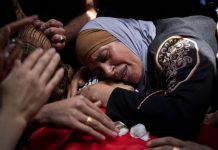
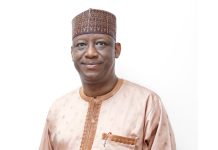
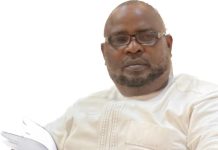
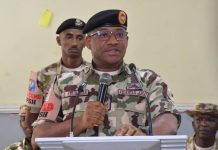


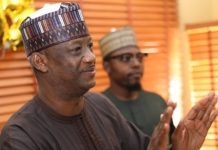

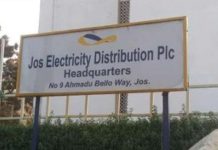
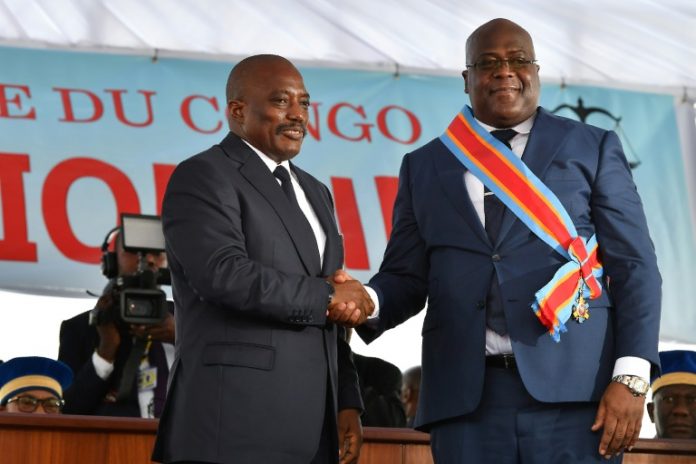

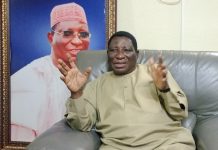
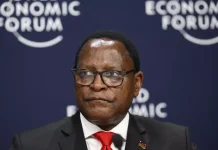




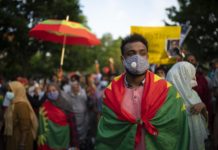

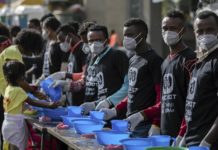





![2018 Sports Review: Winners, losers and questions facing African football 2018 Sports Review [1]: Winners, losers and questions facing African football](http://skynewsafrica.net/wp-content/uploads/2018/12/caf1-100x70.jpg)
![Watch: The harrowing moment a taxi flies into pedestrians in Ballito SA [video]](http://skynewsafrica.net/wp-content/uploads/2018/12/acci2-100x70.png)

